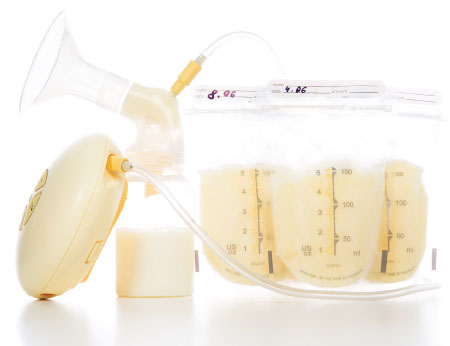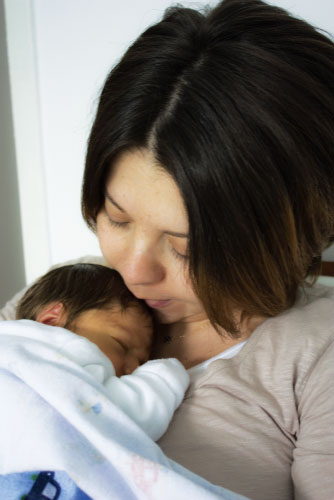Keep up with your milk supply by expressing your milk whether you are ill or on medication.
Experts agree that breast milk should be given exclusively for the first 6 months and later coupled with solids and other complementary foods until the child reaches 2 years and beyond. During these breastfeeding years, and similarly throughout life, mothers are not spared from susceptibility towards illnesses. When this happens many feel dissuaded from continuing to provide their baby with the rich nutrients and antibodies that breast milk is most synonymous for.
Their concerns are understandable, in the event a mother is infected with flu, fever or other illnesses, their body may become weak and the mood to breastfeed may dissipate gradually as their illness starts to worsen. Mothers also fear that their illness may be transferred to the baby causing the baby to fall sick.
Rest assured, despite the many misconceptions, most paediatricians and breastfeeding experts agree that mothers should continue to breastfeed even when unwell. The main reason for this is that mothers would have had already transferred the illness even before showing any symptoms of being unwell. Since the mother’s body is also simultaneously building an immune response towards the sickness, the baby will benefit via the disease-fighting antibodies passed from the mother directly into the breast milk.
However:
- If your sickness persists longer than 3 days, you should visit a doctor for treatment and consult whether it would still be safe for you to breastfeed.
- If you need to take medication, ask your doctor to give medicines that are also safe for the baby. This usually involves antibiotics that can enter the breast milk.
- If you don’t feel up to it, you can always express your milk and have your spouse or caregiver feed it to the baby. This way you can avoid other breastfeeding complications such as engorgement while still being able to provide the baby with your milk.
- You should always remember to wash your hands every time before breastfeeding to prevent infection. Avoid kissing your baby during this time also, don’t worry there will be plenty of time for this later as soon as you get better.
- Babies under 3 weeks and premature babies are an exception since they are particularly vulnerable to infections. Mothers are usually separated from the baby if she is ill during delivery. A gown and a mask may be required if the mother insists on holding the baby.
Some common illnesses and recommendations on breastfeeding practice:
Hepatitis C
Hepatitis B
Herpes Simplex
Chicken Pox
Swine Flu (H1N1)

Breastfeeding is NOT RECOMMENDED in the following
- Mothers with Human Immunodeficiency Virus (HIV), T-cell Lymphotropic Virus, untreated, active tuberculosis
- Mothers on antiretroviral (HIV) medications
- Mothers on illicit drugs
- Mothers on prescribed cancer chemotherapy agents
- Mothers undergoing radiation therapies
While mothers are unwell, they should get plenty of rest and drink a lot of fluids. It will help to speed up the recovery process as well as replenish their milk supply. When uncertain, mothers should seek professional healthcare advice prior to breastfeeding in order to avoid the baby from contracting a disease that may prove detrimental or even fatal at such an early and vulnerable stage of his/her life.
An educational contribution by Malaysian Paediatric Association.







Comments